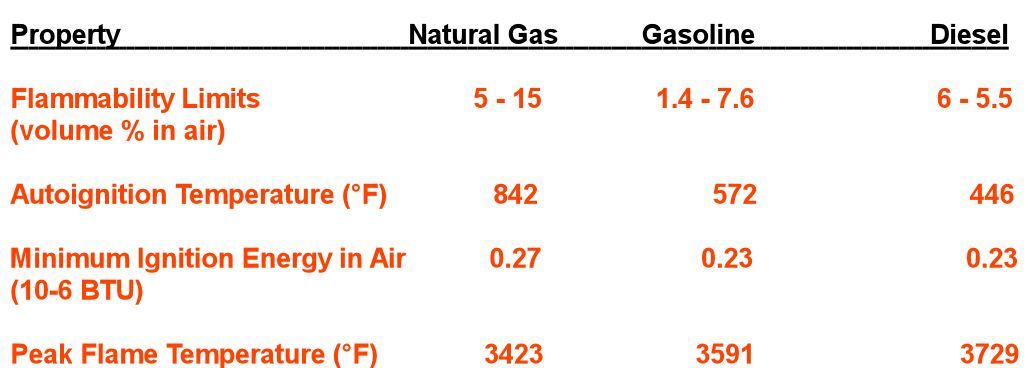The reason why we don't have Natural Gas fuel tanks in the US, is because of potential explosions.
Not the common person can fill a tank full of NG, without a leaking gas cap, a leaking gasket, or overflow.
NG will leak out if you don't fill a tank correctly, and seal it right.
In a collision, a loco, or car, powered by NG will explode upon impact.
A loco with a leak of NG will explode ... but a loco with a leaking diesel fuel tank will not explode
This statement is based on your opinion, not facts. So how do the millions of CNG passenger autobiles, bus & trucks fiil their tanks every day without incident. How do you fill your BBQ grill tanks? I live within one block of CNG/Propane filling stations for the last 20 yrs, never has there be an incident. There are more torn gasoline fill hoses caused by errant drivers pull away from gasoline pumps, then incident of folks using propane/CNG. I think maybe you need to visit the upper 48 and check out the propane storage tanks at any RV park.
John

